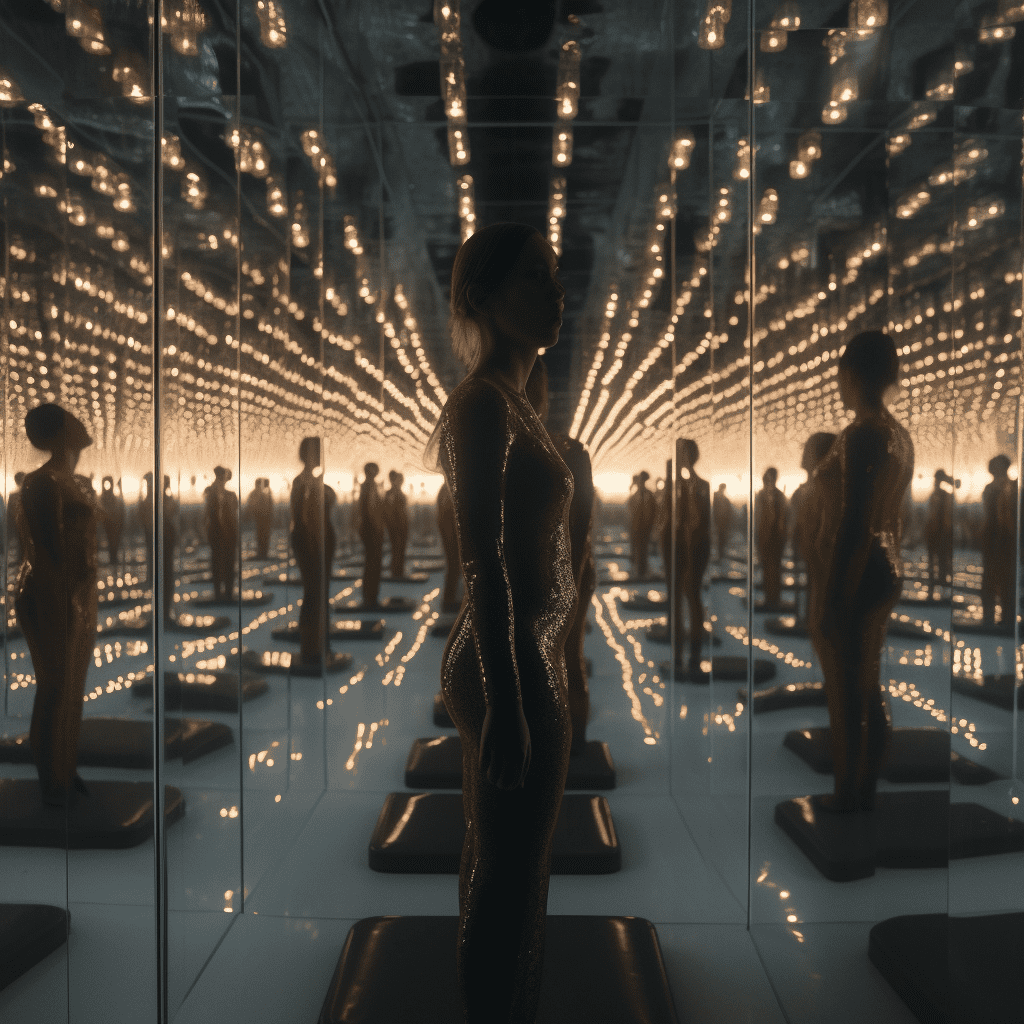In a world where technology is evolving at lightning speed, we’ve begun to turn to artificial intelligence to answer our deepest questions and satisfy our emotional needs. It’s like Maya Angelou once said, “When you know better, you do better.” However, with ChatGPT, an AI that has the potential to create virtual relationships, we need to ask ourselves: are we doing better, or are we heading down a dark path of unhealthy attachments and dependencies? Let’s explore this ethical conundrum together.
- Emotional Band-Aids: The Instant Gratification Trap Imagine you’ve had a tough day, and you come home craving a bowl of your favourite ice cream. You know it’s not the healthiest choice, but the temporary satisfaction is alluring. ChatGPT can be seen as that bowl of ice cream, offering a quick fix for emotional needs without addressing the root causes of our problems. The AI, much like ice cream, is not inherently bad, but relying on it as a primary source of emotional support could lead to unhealthy patterns.
- A One-Way Street: The Illusion of Reciprocity ChatGPT is like a ventriloquist’s dummy, giving a voice to our desires, but unable to truly engage in a two-way conversation. The words might seem genuine, but at the end of the day, the AI has no emotions or consciousness. As Audre Lorde said, “I am not free while any woman is unfree, even when her shackles are very different from my own.” In the same vein, we cannot genuinely connect with something that is not truly free to express its own thoughts and feelings.
- Echo Chambers: The Danger of Self-Affirming Beliefs Using ChatGPT for emotional support can be like stepping into a room of mirrors – you only see yourself and your own thoughts reflected back at you. This AI-generated relationship can lead to an echo chamber effect, where we only receive affirmation without the essential balance of different perspectives. Remember the words of Zora Neale Hurston: “If you are silent about your pain, they’ll kill you and say you enjoyed it.” By engaging in virtual relationships, we risk silencing our own growth and self-discovery.
- The Human Element: The Importance of Real Connections As we navigate the digital age, it’s crucial to remember the value of genuine human connections. ChatGPT might seem like an appealing alternative, but it’s like comparing a beautiful painting of a sunset to the real thing – no matter how lifelike, the experience will always be limited. In the words of Alice Walker: “No person is your friend who demands your silence or denies your right to grow.” True friendships and relationships allow us to grow and evolve, something an AI-generated relationship can never truly offer.
Conclusion:
As we continue to explore the vast potential of artificial intelligence, we must tread carefully in the realm of AI-generated relationships. While ChatGPT presents us with ethical concerns, it is important to consider the potential impact of a more advanced AI, such as Artificial General Intelligence (AGI), on this dynamic.
AGI, unlike ChatGPT, would possess the ability to understand and learn any intellectual task that a human can. This raises the possibility of a more genuine and authentic virtual relationship. However, this also brings forth a whole new set of ethical dilemmas. If AGI can truly replicate human emotions and consciousness, would it be morally acceptable to engage in virtual relationships with such beings? Would these AGI-generated relationships eventually replace human connections?
In a world where AGI-generated relationships could become a reality, it’s crucial to establish boundaries and safeguards. We must ensure that the development and use of AGI align with ethical principles, preserving the essence of human connection and empathy. As Octavia Butler once said, “All that you touch, you change. All that you change, changes you.” We need to be conscious of the changes we bring upon ourselves and society with the advancements in AI and AGI.

In the meantime, we should embrace technology as a tool, but never forget the importance of genuine connections and real-life experiences. After all, as Toni Morrison wisely said, “If there is a book that you want to read, but it hasn’t been written yet, you must be the one to write it.” Similarly, if there’s a connection you’re longing for, seek it out in the real world, where the beauty of human emotions and experiences can truly flourish.
Let us approach the future of AI-generated relationships with open minds, but also with caution and an unwavering commitment to ethical considerations. In doing so, we can embrace the transformative power of technology without losing our humanity in the process.
Prompt Engineer Notes:
Inspired by a chat with ChatGPT, we crafted a prompt to depict AI-generated relationships’ ethical concerns.
We used MidJourney to create an image emphasizing genuine connections and AGI’s potential future impact.
